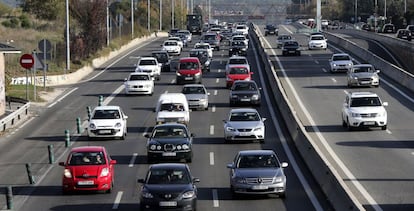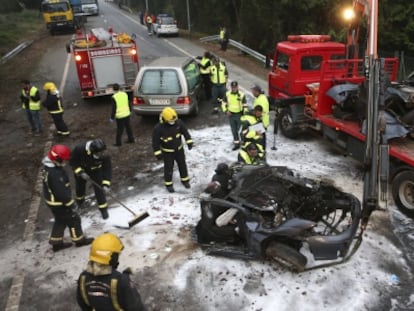Over one-fifth of Spanish motorists believe they can trick a drug test
Among the myths are drinking coffee, rinsing with mouthwash and eating lemons, says a new survey


A new study has revealed that 22% of Spanish motorists believe they can get around drug tests performed at Civil Guard traffic control stops.
Drinking water, coffee or energy drinks, sweating through exercise, using mouthwash, and eating lemons are some of the “myths” many Spaniards believe will help from getting a positive reading when they are subject to the saliva test used by the authorities to detect narcotics use.
“Products on the market for this purpose are ineffective as various scientific studies have shown” DGT official Juan Carlos González
The conclusions are contained in a study Mitos and falsas creencias de los conductories sobre los controles de drogas (or, Myths and other erroneous beliefs of drivers over drug control stops), which was prepared by the Spanish Foundation for Traffic Safety (Fesvial) and published by the DGT state road safety agency.
“Products are available on the market for this purpose [to try and avoid a positive reading],” said Juan Carlos González, assistant deputy director for investigation and intervention at the DGT. “However, they are ineffective, as various scientific studies have shown.”
The survey was carried out on 1,205 people between the ages of 18 and 60. It also revealed that younger people are more likely to think they can cheat a drug test, with 27% of under 25s saying it could be done.
In 2013, Fesvial published a similar study about motorists who believed that they could get around a breath analyzer test for alcohol. In that survey, 30% said that they thought that some of that some of the same practices were effective.
“Nothing works,” said the DGT. “When we perform these tests there is a long and continuous exhaling of the breath. Air is expelled from the alveoli, which are subjected to exchanges of gases and air. This makes it impossible to adulterate the results.”
In a Fesvial study on drug use published last month, 30% of Spanish motorists said they believed that using narcotics, such as cocaine and heroin, wouldn’t lead to a positive reading. Some 30.8% also said that they thought drugs tests wouldn’t detect small amounts of hashish or marijuana.
In a study last month, 30% of Spanish motorists believe that using narcotics won’t give positive readings
“A positive drug result from saliva always means that there is a sufficient quantity to determine that the drug has been consumed,” said González several months ago.
Civil Guard officers can detect whether a person has smoked hashish or marijuana up to six hours before they are tested.
DGT authorities have embarked on a new campaign over the past few months to go after motorists who are under the influence of drugs. The Civil Guard said it will conduct up to 120,000 tests at traffic control points this year.
English version by Martin Delfín.









































